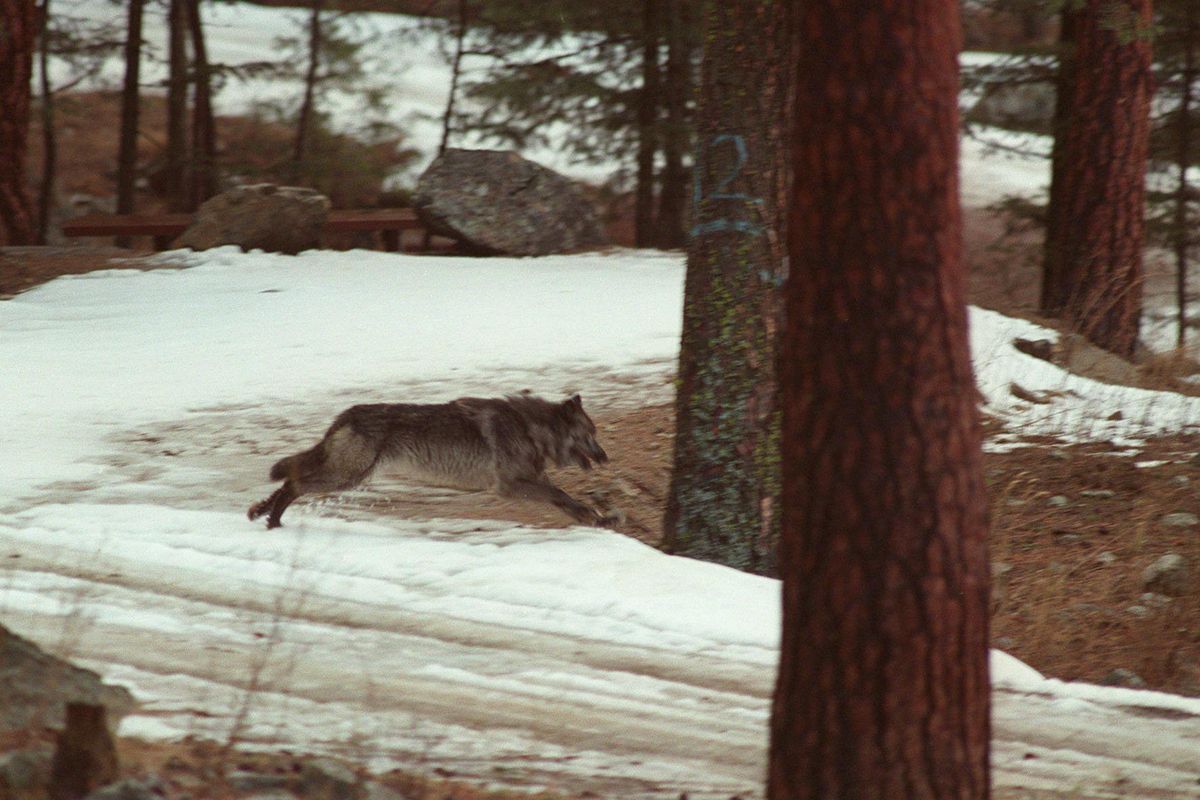Idaho wolf control board seeks another $400K next year to kill problem wolves

A state board charged with contracting to kill wolves that attack livestock asked state lawmakers for another $400,000 on Friday, though the board has $1.4 million in the bank.
Carl Rey, a member of the Idaho Wolf Control Depredation Board, said the annual $400,000 payments from the state general fund are part of deal struck with livestock industry and sportsmen, who also are contributing up to $110,000 each year to the fund.
“We have found that we have carry-overs, obviously,” Rey told the Legislature’s Joint Finance-Appropriations Committee. “We’re only asking now that we complete the five-year cycle that was originally intended.”
The board’s mission expires in June 2019, but Gov. Butch Otter and the board are proposing to make it a permanent, ongoing state expense, possibly at a lower annual level. Rey said lawmakers will get a chance to weigh in.
The board spent $461,900 last year, the most it has ever spent.
“Because of the severe winter that we all had, depredation on both sheep and cattle essentially doubled last year,” Rey told lawmakers. “It was somewhat expected.”
But he said the state also is seeing increased reporting of depredation, which is when wolves kill livestock. And Todd Grimm, state director of U.S. Wildlife Services, which contracts with the state board to shoot and trap the problem wolves, said investigative techniques have advanced, allowing more intact carcasses to be identified as wolf-kills that previously couldn’t be confirmed.
“We think we’re going to have higher incidents of reporting, with or without severe winters,” Rey said.
Rep. Neil Anderson, R-Blackfoot, asked Rey, “What exactly are we doing to control wolves? How are we spending this $400,000 bucks? Do we have people flying over in planes and shooting ‘em, or trappers, or what exactly are we doing?”
Rey said the funds go primarily toward contracts with Wildlife Services. “Most of the activities include uses of helicopters, placing traps, doing investigations, providing control actions, providing lethal control where it’s appropriate,” he said, adding that much of the cost come from investigations. “There’s lots of vehicular mileage, lots of labor, lots of late-night and overtime pay.”
The board’s statutory authority only provides for lethal control, he said.
“When the Wolf Depredation Control Board becomes involved, it’s because there is a problem pack causing problems with livestock, or in some cases ungulates” such as deer and elk, he said.
Rep. Phylis King, D-Boise, said, “So you have a million dollars in your fund and you’re asking for another $400,000. Are you going to do anything differently this year to spend that $400,000?”
Rey said no. “What the wolf board is asking this committee is just this one last time, contribute this $400,000 enhancement request to abide by the original spirit of the agreement that was struck with the industry and sportsmen. Beyond that, we recognize that there is certainly some room to evaluate how we move forward in the future.”
Plus, he said, “Helicopters aren’t getting any cheaper to fly. It’s a very expensive method, and it’s also our best method.”
Ed Schriever, deputy director of the Idaho Department of Fish and Game, said managing the overall wolf population is Fish and Game’s job, and it does so through hunting and trapping seasons. “And in fact, since de-listing, the wolf population has been reduced statewide,” Schriever told lawmakers, “although it remains well above the minimum required by the Endangered Species Act to be evaluated for re-listing.”
Schriever added, “Wolves are very mobile, and they travel great distances and re-establish packs in locations that are somewhat unpredictable.”
After the budget hearing, Anderson said he’s “not so concerned” about the wolf board’s large fund balance, “because we’ve got that sunset in ’19.”
“We’ve kind of embarked on this plan for five years, and we’re coming to the end of that,” Anderson said. If the board is being given more state money than it actually needs, he said, “We can address that in the future appropriations.”